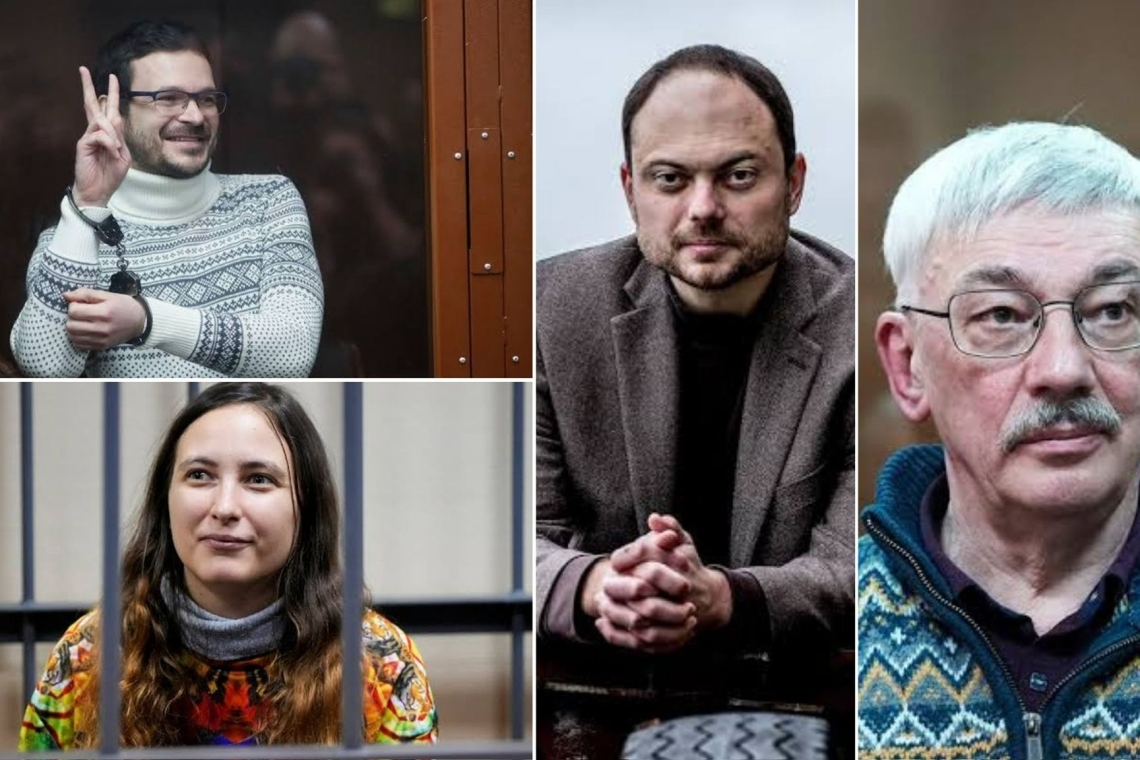By Barış Altıntaş
Swapping your own citizens, unjustly imprisoned for opposing war or defending human rights, as if they were prisoners of war — that’s the lowest point a state can reach. And yet, in the high-profile exchange brokered by Turkey on August 1, Russia did exactly that. The people freed in this deal — journalists, activists, human rights defenders, and opposition politicians — were no different, legally or morally, from Turkey’s own political prisoners: Osman Kavala, Selahattin Demirtaş, Can Atalay, and many others languishing behind bars for similar “crimes.”
The historic prisoner swap between Russia and the West included prominent dissidents like Russian journalist Vladimir Kara-Murza, opposition politician Ilya Yashin, anti-war artist Sasha Skochilenko, and Oleg Orlov, the former director of Memorial, a Nobel Peace Prize-winning human rights group that was shut down by the Kremlin. All had been handed harsh sentences in politically motivated trials. Among those released was also American journalist Evan Gershkovich, a Wall Street Journal correspondent detained in Russia since 2023 on espionage charges widely considered baseless.
What Russia received in return is a stark contrast: convicted arms dealers, murderers serving life sentences, and FSB (Russian intelligence) spies. These are not dissidents who stood up for their beliefs — they are individuals who helped Russia wage its wars and enforce its authoritarian rule.
Some of the freed Russian prisoners have already landed in Germany. Skochilenko’s partner announced via Telegram that several of the released individuals had boarded a plane from Ankara bound for Germany. These developments suggest that talks with Western capitals had been quietly ongoing for some time, even as the names of rights defenders involved disappeared from public view in recent weeks — a tactic not unusual in Russia’s notoriously opaque penal system. The system that silenced Alexei Navalny before his death in a Siberian prison had many fearing the worst.
And yet, against all odds, the swap went through. The Russian state released Skochilenko, sentenced to seven years for putting anti-war price tags on supermarket items. It freed Orlov, imprisoned for his work preserving the memory of state crimes. It traded away Kara-Murza, handed 25 years for "treason" after he criticized Putin. It let go of Yashin, serving eight and a half years for allegedly “spreading disinformation” about the Russian military.
But for whom?
Germany, too, played a part in the deal by releasing Vadim Krasikov, a Russian citizen convicted of carrying out a political assassination in Berlin on behalf of the Kremlin. According to Russian opposition media, Krasikov had previously been floated as a possible trade for Navalny — a chilling reflection of how authoritarian states equate critics with killers.
On the American side of the swap, Moscow received convicted credit card fraudster Roman Selezneve, serving a 27-year sentence in the U.S., and four Russian intelligence agents captured at different times.
The last major prisoner exchange between Washington and Moscow took place in December 2022, when Russia released American basketball star Brittney Griner in exchange for Viktor Bout, a notorious arms dealer known as the “Merchant of Death,” who had served 12 years in a U.S. prison.
This latest exchange, while a cause for celebration for the families of those released, lays bare a deeply unsettling truth: individuals who did nothing more than say “no” to war were handed over as if they were combatants captured on the battlefield. They were traded for men who have taken lives, sold weapons, and served hostile intelligence services.
Russia, in effect, has “won” back its own war operatives by handing over the very citizens it imprisoned for opposing those wars.
This surreal and perverse transaction inevitably leads to comparisons. The political prisoners in Russia — jailed for journalism, activism, and peaceful protest — are no different from the political prisoners in Turkey. One cannot help but think of Selahattin Demirtaş, sentenced for his political speeches; Osman Kavala, detained without any credible evidence; and Can Atalay, elected to parliament while in prison.
No, I’m not comparing Russia’s notoriously brutal prison system directly to Turkey’s. But in terms of the judiciary — of the legal fictions used to criminalize peaceful dissent — the comparison is painfully fair.
This prisoner swap is not a diplomatic victory. It is not a milestone to be proud of. It is a national disgrace — a moment that reveals just how far a state will go to prioritize its geopolitical goals over justice and human dignity.
And for Turkey, which facilitated the exchange and whose own judiciary has long ceased to be independent, perhaps this moment should serve as a mirror. A reflection of how political persecution degrades not just individuals, but entire nations.



